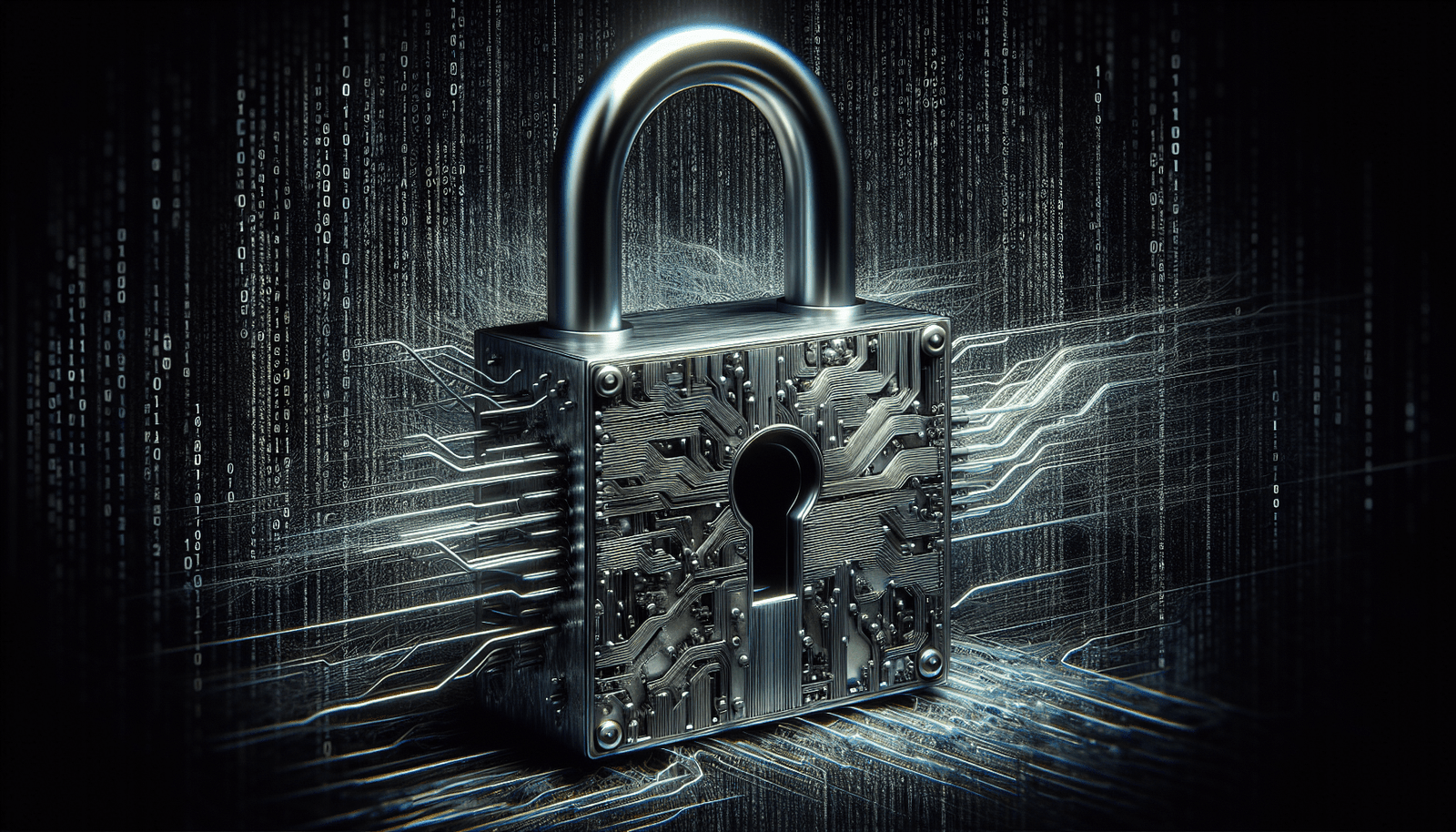Have you ever stopped to think about how much personal information you’re sharing online every day? In our connected world, data privacy has become a hot topic, and rightly so. As I navigate through the digital space, I often ponder how my information is being used and how I can protect it.
What Is Data Privacy?
Data privacy refers to the proper handling, processing, storage, and usage of personal information. As I go about my day – browsing websites, posting on social media, and using various apps – I realize that I’m constantly generating data about myself. This data can include anything from my name and email address to my shopping habits and even my location.
In this age of information, understanding my data privacy has become essential. I often remind myself that, while data sharing can enhance my online experience, it can also pose a significant risk if my personal information falls into the wrong hands.
Why Is Data Privacy Important?
Data privacy is crucial for several reasons, which I think are worth pondering.
-
Personal Security: The more information I share online, the easier it can be for malicious actors to steal my identity or commit fraud. If someone gets access to my credit card details, for instance, I could face significant financial harm.
-
Confidentiality: There are parts of my life I prefer to keep private. Data privacy helps me retain control over my information, allowing me to decide what I share and with whom.
-
Building Trust: Brands and organizations need to earn my trust, and a strong commitment to data privacy is a way to do that. If I feel confident that a company protects my information, I’m more likely to engage with them.
The Evolution of Data Privacy
Reflecting on the past, I realize that the concept of data privacy is not new. However, its importance has evolved dramatically with the rise of technology.
Early Days: Offline Data Collection
In the early days of data collection, my information was collected mostly in offline settings. If I filled out a form at a store or signed up for a loyalty program, that data was usually kept in a filing cabinet, accessible only to those who had permission. While there were still concerns about data security, the risks felt more manageable.
Transition to the Digital Era
As technology advanced, so did the ways in which businesses collected and stored my data. When personal information began to be digitized, it opened up a whole new world of possibilities – and risks. Now, my data can be stored in vast databases, easily accessed and shared among various organizations. That shift has made me consider how often my information might be exposed.
Regulatory Changes and Consumer Awareness
In recent years, I’ve noticed a rising awareness regarding data privacy. Scandals involving major corporations leaking personal information have led to increased scrutiny. As a result, various regulations, such as the General Data Protection Regulation (GDPR) in Europe and the California Consumer Privacy Act (CCPA) in the U.S., emerged to protect my rights as a consumer.
Types of Data Collected
As I think about my daily online activities, I can’t help but realize how much data I’m generating. Below are some of the types of data that are commonly collected:
| Data Type | Description |
|---|---|
| Personal Data | Basic information like name, email, phone number, etc. |
| Behavioral Data | My online behavior, such as browsing history and clicks. |
| Location Data | Information about where I am or where I’ve been. |
| Financial Data | Data related to my purchasing habits, credit card details. |
Personal Data
The most basic type of data I share is my personal data. Whenever I fill out a registration form, I provide my name, email address, and sometimes my phone number. This type of information is essential for companies to interact with me but also poses a risk if mishandled.
Behavioral Data
As I browse the web, I often forget that my behavior online is continuously tracked. Every click, every product I view, and every page visit is recorded and analyzed to create a profile of my preferences. I find this intriguing, but it also raises questions about how much of my activity is being monitored.
Location Data
Have you ever thought about how convenient it is to use location-based services? I know I appreciate getting directions or finding nearby restaurants. However, giving up my location data means I’m often sharing my whereabouts with various apps. It makes me consider how often I want that information collected.
Financial Data
I frequently make purchases online, and in doing so, I share sensitive financial information. Stories of data breaches make me nervous about the security of my financial data. It’s more important than ever to understand how my payment information is handled.
How Data Is Collected
The methods by which my data is collected are vast, and they’re worth discussing. From cookies to tracking pixels to forms, here are some of the primary ways data is gathered:
Cookies
Cookies are tiny pieces of data stored on my device while browsing the internet. They allow websites to remember my preferences and behaviors. I appreciate how they enhance my browsing experience, but I know they also enable companies to track my online activity.
Tracking Pixels
I’ve noticed that many websites use tracking pixels, which are tiny, invisible images embedded on web pages or emails. They help companies track whether I opened an email or visited a particular page. While they provide valuable insights to businesses, they also raise concerns about my privacy.
Online Forms
Every time I fill out a form online, I share my information and, sometimes, even make it public. Whether it’s signing up for a newsletter or creating an account, I often wonder how that data will be used.
Data Privacy Regulations
Understanding data privacy regulations is crucial, especially in a world where my information is constantly at risk. Here are some significant regulations worth considering:
General Data Protection Regulation (GDPR)
The GDPR is a European Union regulation that came into effect in 2018. It governs how personal data must be handled and empowers individuals like me with rights over my data. I have the right to access my information, request corrections, or even ask for it to be deleted. This legislation highlights the need for businesses to prioritize data privacy.
California Consumer Privacy Act (CCPA)
The CCPA is a California law that grants residents the right to know what personal data is collected, how it’s used, and with whom it’s shared. As a Californian, I find it comforting to know that I can request this information and opt-out of the sale of my data. This law emphasizes transparency and accountability.
Health Insurance Portability and Accountability Act (HIPAA)
When it comes to medical data, HIPAA plays a significant role in protecting my health information. It safeguards my medical records and limits how healthcare providers can share that data. Knowing I have rights regarding my health information gives me peace of mind.
Risks of Data Exposure
While technology has brought numerous benefits, it has also introduced significant risks regarding data exposure. Understanding these risks can help me make informed choices about my personal information.
Identity Theft
One of the most concerning risks I face is identity theft. If someone gains access to my personal data, they could impersonate me, opening credit accounts in my name or making unauthorized purchases. This reality highlights the need for continuous vigilance.
Data Breaches
Data breaches have become alarmingly common. When a company’s data is compromised, my personal information can be exposed. From large corporations to small businesses, no one is immune. Each time I hear about another breach, I remind myself to change my passwords and monitor my accounts.
Phishing Scams
Phishing scams are prevalent in our digital age. They often come in the form of emails that appear legitimate but are actually attempts to gather my personal information. I’ve learned to be cautious about clicking on links and providing information, but it’s easy to fall victim if I’m not vigilant.
Best Practices for Maintaining Data Privacy
As I navigate the digital landscape, I’ve come to appreciate some best practices that can help me maintain my data privacy. Here are a few tips I’ve adopted:
Use Strong Passwords
Creating strong, unique passwords for each of my accounts is a must. I’ve started using a password manager to keep track of them, which adds an extra layer of protection.
Enable Two-Factor Authentication
I’ve made it a priority to enable two-factor authentication whenever possible. This adds an additional step for verifying my identity and has been proven effective in enhancing security.
Be Smart About Public Wi-Fi
When I’m out and about, I often encounter public Wi-Fi networks. While it’s convenient, using them can expose my data to security risks. I try to avoid logging into sensitive accounts on public networks.
Regularly Review Privacy Settings
I’ve taken the time to review the privacy settings on my social media accounts. By adjusting these settings, I can control who sees my posts and what personal information is shared.
Educate Myself
Staying informed about data privacy and recognizing the latest trends in data collection has become essential for me. I make it a habit to keep up with news articles and educational resources.
Conclusion: Advocating for My Own Data Privacy
As I reflect on my journey through the digital realm, I recognize the importance of advocating for my own data privacy. Understanding how my information is collected, used, and protected empowers me to make informed decisions. While navigating the digital landscape can be daunting, I believe that through awareness and informed choices, I can protect my personal information. In an age where data is currency, I hold the key to my own privacy – and that’s a powerful realization.






